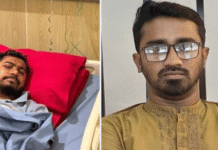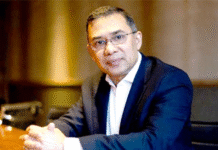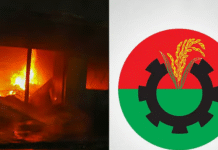They also called for forming the EC with honest, impartial personalities, who believe in the spirit of the Liberation War and will run the EC in an independent and neutral manner.
The NNP delegation proposed for the formation of an election-time government to be comprised of the representatives of registered political parties, who believe in the spirit of Liberation War in line with Article- 56 of the Constitution, while the government will be led by prime minister.
Welcoming the NPP delegation at Bangabhaban, the president said discussion and exchange of views with the political parties would help in forming an acceptable election commission.
The head of the state said views-exchange meeting among the political parties would play a fruitful role in resolving any issue in a democracy.
President Hamid also thanked the political parties for giving their thoughtful views.
President’s office secretary Sampad Barua, military secretary Major General SM Salah Uddin Islam, press secretary Md Joynal Abedin and secretary (attachment) Md Wahidul Islam Khan were also present.
The Bangladesh Nationalist Party (BNP) did not take part in the dialogue on Wednesday. With the BNP, a total of seven political parties refrained from taking part in the dialogue so far.
With the BNP, a total of seven political parties refrained from taking part in the dialogue so far
President’s press secretary Joynal Abedin said the president invited a total of 32 political parties, including the ruling Bangladesh Awami League, for a dialogue on forming an independent, neutral and credible EC.
Earlier, on 20 December last year, the first day of the ongoing dialogue with the political parties, he started a dialogue with Party, the main opposition party in the Jatiya Sangsad (parliament).
On Thursday, the president will hold a dialogue with Zaker Party at 7:00pm, Bangladesh Kalyan Party at 7:30pm and Bangladesh Jatiya Party (BJP) at 8:00pm.
Ruling Bangladesh Awami League is scheduled to hold a dialogue with the president on 18 January at 4:00pm.
Earlier, a dialogue was held with the participation of political parties ahead of the ninth, 10th and 11th parliamentary elections.
The president has been given the power to appoint CEC and not more than four election commissioners.
In the last few terms, the president formed the EC on the basis of the recommendations of the search committee.
The current EC’s five-year tenure would expire on 14 February this year.
During this period, the president will form a new EC, under which the 12th Jatiya Sangsad elections will be held.










